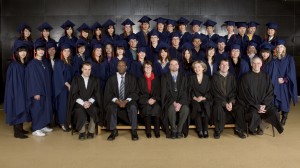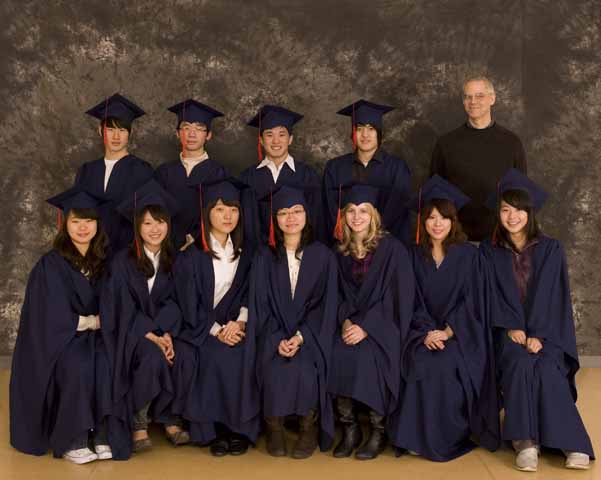A man unknowingly kills his father and marries his mother, fulfilling a prophecy made years before. When he discovers what he has done, he gouges his eyes out with his mother/wife’s hairpins. A young woman defies the law and risks her life to give her brother’s body a proper burial. The general of an allied army agrees that his eldest daughter should be put to death so that he can lead the army in a war to defend his brother’s honour. A woman, abandoned by her husband, wreaks her revenge by murdering their children.
These are just a few of the more memorable stories from ancient Greek poetry and drama. Written 2500 years ago, they still capture our imagination. Students known to doze in class are suddenly awake and engaged. These Greek stories have amazing power.
Their power is not merely the power of lurid plots, as the brief descriptions given above might suggest. The Greek stories are often lurid, it’s true, depicting unspeakable acts of seemingly primitive ferocity. Some readers—Sigmund Freud, for one—believe that they enthrall us because they conjure our deepest wishes and fears. “Moderation in everything”, said the Greek philosophers, “nothing overmuch.” Reading their stories and their history, one can’t help feeling that they extolled moderation because they could never achieve it themselves.
But the power of ancient Greek literature is not merely sensationalist. As Aristotle pointed out, our experience of these stories as stories—not actual events—gives us the emotional distance we need to reflect on them, and learn from them. (Aristotle also asserted that learning is the highest—not the greatest—pleasure known to humans, which helps explain why we enjoy these sometimes horrific tales.) We are appalled when Orestes murders his mother to avenger his father’s death, yes; but we are also made to think, and that thinking can lead to the most profound reflections concerning law, society, duty, taboos, the relationships between children and parents, and on and on.
Moreover, the culture of ancient Greece, along with that of the ancient Hebrews, lies at the root level of Western civilization. We cannot really understand European culture without knowing the Greeks; we cannot know ourselves without knowing the Greeks; we cannot, in the end, claim to be educated without knowing the Greeks.
Unfortunately, the Greeks have largely disappeared from school curricula. In secondary schools, younger students have a few sanitized Greek myths thrown at them, usually along with a potpourri of Norse, African, Asian, and Amerindian myths, legends, and folktales. Older students rarely return to the Greeks, and if they do, the visit is brief: an excerpt from The Odyssey, perhaps. “Advanced” students may read Oedipus Rex or Antigone. For most, nothing at all. In universities, very few students read any ancient Greek literature.
Why is this a problem? A while back, I saw a television interview with Bill Joy, who was at that time “chief scientist” for Sun Microsystems. He had written a magazine article discussing the ethical problems raised by the prospect of having in the near future a million times the computing power of a typical contemporary computer, on every desktop. His article provoked a small storm of debate about how or whether we should try to control such awesome power, and in the course of that debate someone referred to the ancient Greeks. Mr. Joy was prompted to go back to the Greeks, to see what they had to say. His conclusion? “The Greeks”, he said, “understood all of the issues raised in my article”.
Writing about what he thought was a new problem soon to be caused by an astronomical increase in computing power, Bill Joy discovered that the essential issues involved had already been explored, 2500 years ago. Bertrand Russell, who remarked that all of Western philosophy consists of footnotes to Plato, would not have been surprised. It’s a tribute to Mr. Joy that he had the insight to raise these questions. I can’t help wondering, however, how much sooner he would have achieved his insights, and how many others would have foreseen the same problems, had a thorough exposure to Greek literature and philosophy been a part of everyone’s general education.
Greek philosophy, by the way, is not as scary as it might sound. Like Greek literature, it combines a surprising simplicity with amazing depth. The Greeks, in the infancy of Western thought, produced literature and philosophy that can be read and enjoyed by children, and re-read over a lifetime with increasing understanding and appreciation. Soon after his election as President of the United States in 1932, Franklin Roosevelt paid a visit to Oliver Wendell Holmes, the Supreme Court justice. Noticing a book on the table, FDR asked Holmes, who was then in his nineties, why he was reading Plato. “To improve my mind”, he said.
Plato wrote philosophy as literature. His dialogues feature a wonderful protagonist, Socrates, who delights his young friends and infuriates his opponents by asking seemingly simple questions they cannot answer, all the while professing to know nothing himself. The best introductions for secondary school students are the “Apology”, which recounts the trial and conviction of Socrates, and the “Crito”, in which Socrates refuses the opportunity to escape death by fleeing. Both will provoke vigourous discussions. My other favourite is the “Meno”, in which Socrates famously claims to to demonstrate his theory of learning by helping an unschooled slave-boy to learn geometry. The “Allegory of the Cave”, which forms just a small part of the very long dialogue named “The Republic”, is also a must-read. As is common in literature, the surface often deceives in Plato’s dialogues. It is not at all certain, for example, that Plato’s description of the ideal state in “The Republic” is really intended to be a blueprint for political reform. In the “Meno”, similarly, Socrates may not really believe that the demonstration with the slave-boy proves anything; he may simply want to convince Meno not to give up searching for the truth.
If your school is lucky enough to include philosophy in the curriculum, Plato will provide enough material for all the lessons the school could possibly offer. If not, I would argue strenuously for adding Plato to the reading lists for English. A dialogue, after all, is literature, and few alternative works will provide as much stimulation. English teachers who are used to finding ambiguity and layers of meaning in works of fiction will have no trouble finding them in Plato.
As for Greek literature per se, The Odyssey is first on my list. It can be read profitably, in different ways, by students at any grade level. The great myths–the Oedipus cycle, the story of the Trojan War, the Agamemnon/Orestes saga–should be taught in the middle years so that students can later read Sophocles, Aeschylus, and Euripides with the benefit of their earlier experience. Once their interest has been piqued, students can explore the lesser myths on their own and in groups, and then share their discoveries with their classmates in speeches, presentations, and written work. In Grades 10-12, students should read the full versions of The Odyssey, Oedipus Rex, Antigone, Agamemnon, and as many other plays as possible. Remember: if your students don’t read these great works in high school, it is almost certain that they will never read them at all.
For a teacher who has never studied Greek literature or philosophy, getting started teaching it can be intimidating. My advice is to start small, and go slow. Begin with a re-telling of The Odyssey, or a selection of myths, or a re-telling of the trial and death of Socrates. The response of your students will convince you that you’re on the right track.




